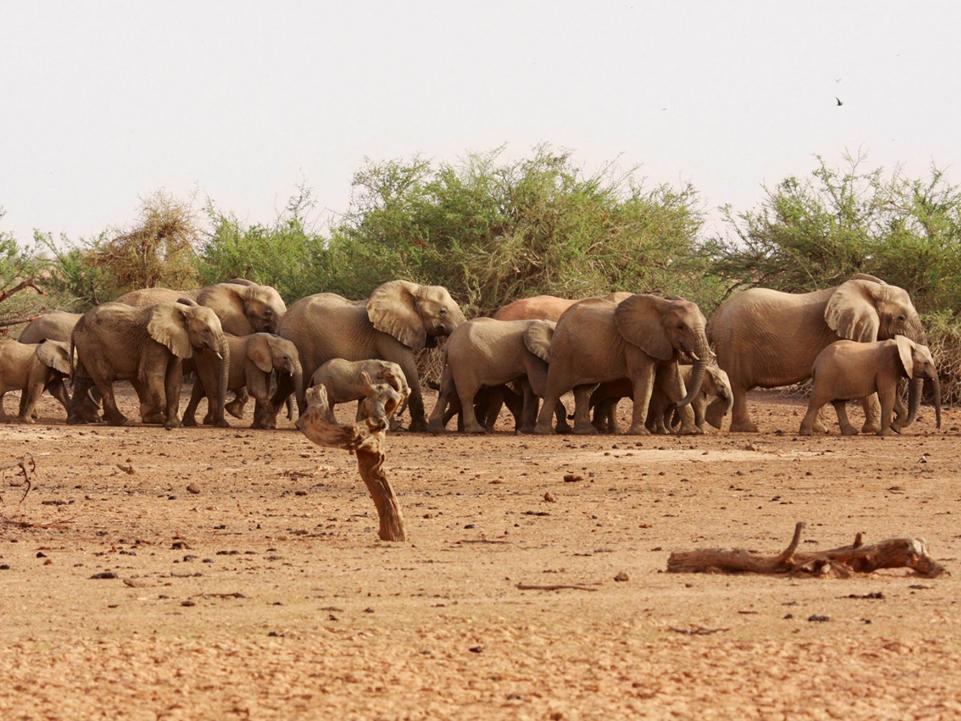Mali's anti-poaching brigade protecting desert elephants from illegal hunting
Collective formed of rangers and soldiers protect herds already beset by sandstorms and terrain's harsh conditions from the bandits and al-Qaeda operatives known to crisscross region

Your support helps us to tell the story
From reproductive rights to climate change to Big Tech, The Independent is on the ground when the story is developing. Whether it's investigating the financials of Elon Musk's pro-Trump PAC or producing our latest documentary, 'The A Word', which shines a light on the American women fighting for reproductive rights, we know how important it is to parse out the facts from the messaging.
At such a critical moment in US history, we need reporters on the ground. Your donation allows us to keep sending journalists to speak to both sides of the story.
The Independent is trusted by Americans across the entire political spectrum. And unlike many other quality news outlets, we choose not to lock Americans out of our reporting and analysis with paywalls. We believe quality journalism should be available to everyone, paid for by those who can afford it.
Your support makes all the difference.Mali’s elephants, Africa’s northernmost herd and adapted to life in the country’s harsh desert, were in desperate need of protection.
The animals live in an unforgiving landscape southeast of Timbuktu, enduring sandstorms and blistering temperatures. To survive, they trek in search of food and water across what is thought to be the biggest migratory range of their species, more than 12,400 square miles.
But it wasn’t only climate change endangering the elephants. It was also poachers.
They were being slaughtered in staggering numbers as ivory traffickers took advantage of a security vacuum in the region, with 163 killed since 2012, said Susan Canney, director of the Mali Elephant Project, an initiative of the Wild Foundation and the International Conservation Fund of Canada.
The situation was so dire that in January 2016, Canney predicted that all of Mali’s elephants would be killed within three years if poaching continued unabated.
“They are probably among the most extremely endangered of Africa’s elephants,” said Iain Douglas-Hamilton, the founder of Save the Elephants, a wildlife advocacy group. “I am extremely worried.”
To defend the 300 or so elephants that remain, Mali has formed an anti-poaching brigade to patrol a Switzerland-sized area called the Gourma, with the force deterring poachers and assisting isolated communities along the elephants’ migratory route.
The brigade combines rangers and army forces, a necessary pairing for protecting wildlife in this hostile territory, regularly crisscrossed by offshoots of al-Qaeda and bandits.
Since the brigade deployed nine months ago, not a single elephant has been lost to poachers, said Colonel Major Soumana Timbo, the deputy director of National Directorate of Water and Forests, which oversees the rangers.
The New York Times
Join our commenting forum
Join thought-provoking conversations, follow other Independent readers and see their replies
Comments